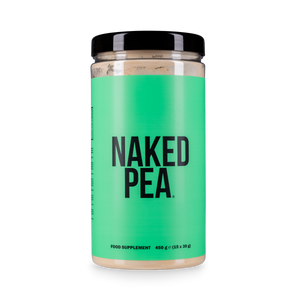Millions of people worldwide drink coffee everyday for its rich flavor and energizing effects. However, there has been ongoing debate about whether coffee can contribute to weight gain.
In this article, we'll delve into the science behind coffee and weight gain to separate fact from fiction. We'll explore how coffee affects the body, its potential impact on weight, and how you can enjoy your daily brew without compromising your health goals.
Does Coffee Contain Calories?
Coffee itself is a low-calorie beverage, typically containing only 2 calories per 8-ounce cup when consumed black and without any added ingredients.
However, the calorie content can increase significantly depending on how you prepare your coffee. Adding sugar, cream, milk, or flavored syrups can quickly raise the calorie count, potentially contributing to increased body fat.
Therefore, while black coffee is a minimal-calorie option, it's essential to be mindful of how you dress up your coffee drinks to avoid unknowingly consuming excess calories.
Drinking coffee alone does not cause weight gain, as there are many factors that contribute to changes in body weight. However, certain coffee drinks definitely contain more sugar and calories.

How Does One Gain Weight?
Gaining weight occurs when the body takes in more calories than it burns over time. This imbalance can be influenced by various factors, including diet, physical activity levels, metabolism, and genetics.
Consuming excess calories from high-calorie foods and beverages, especially those high in sugars and fats, can lead to weight gain. Additionally, a sedentary lifestyle that lacks regular physical activity can contribute to weight gain by reducing the number of calories burned.
Can Coffee Make You Gain Weight?
Weight management is complicated and it'd be too simple to say that drinking a cup of coffee causes weight gain. Consuming a calorie surplus, regardless of where the calories are coming from can contribute to weight gain.
While black coffee is low in calories and may even have some metabolism-boosting effects, the issue often arises with the additives people use. For example, adding sugar, cream, syrups, or high calorie additives can significantly increase its calorie content, potentially contributing to weight gain if these additions are not accounted for in the overall diet.
Additionally, some research suggests that caffeine, a key component of coffee, could potentially increase energy expenditure and fat oxidation, which could theoretically support weight loss rather than weight gain.

Can Coffee Help You Lose Weight?
While drinking multiple cups of coffee daily loaded with added sugar and saturated fat can contribute to weight gain over time, coffee by itself may actually help promote weight loss.
For the healthiest option that might support weight loss, drink your cup of coffee black, or with a bit of plant based milk or cow's milk. When choosing plant based milks, opt for oat, soy, almond, or cashew for example. Many coconut milk varieties are high in calories and saturated fat and may not be the best option for managing a healthy weight.
Caffeine is a natural stimulant and caffeine may help with appetite control as it suppresses the hunger hormone, ghrelin. Plus, caffeine acts to minimize blood sugar spikes which can increase fat burning and boost metabolic health. If you prefer decaffeinated coffee, there also might be some natural compounds in the coffee beans itself that may contribute to weight loss.
Additionally, caffeine from coffee may help improve exercise performance by providing a boost of energy during your workouts, allowing you to work harder and for longer durations during your training. Plus, after a good workout, your body is more readily able to burn fat which is helpful for weight loss.
However, if you're looking to lose weight, it's important to ensure you're following a balanced and nutritious diet plan and engaging in regular physical activity, not simply relying on coffee of course for your weight loss.

Does Coffee With Sugar Make You Gain Weight?
When you order a venti mocha caramel frappuccino or a similar high-calorie coffee drink from your favorite coffee shop, you're essentially getting more than just coffee. These beverages are often loaded with sugar, syrups, whipped cream, and extra calories, turning them into more of a dessert than a simple coffee.
Consuming sugary beverages or high calorie beverages in general can easily push you over your daily calorie limit and contribute to weight gain, especially if they become a regular part of your diet. So, while the coffee itself may not be the culprit, the added ingredients and calories in these fancy coffee drinks can indirectly contribute to a higher body weight and unhealthy eating habits.
The dietary guidelines suggest that Americans consume no more than 25 grams of added sugar daily, and many of these drinks put sugar intake way over that recommended limit.
If you enjoy flavored coffee but don't want the extra calories, try switching to our mocha or vanilla flavored high-protein iced latte drinks, Naked Protein Coffee. These options are very low in added sugar and can therefore allow you to enjoy your favorite caffeinated beverages while limiting added sugar.
With a substantial 20 grams of protein per serving, it provides a satisfying and filling option that can help support muscle health and keep you full for longer. With only 3 grams of added sugars and 3 grams of fat, you can cut back on sugar and fat while still enjoying a delicious and energizing coffee drink.

Can Artificial Sweeteners Cause Weight Gain?
There is mixed research on whether or not consuming artificial sweeteners in coffee can contribute to weight gain. While most of these sweeteners are technically calorie and sugar free, it's possible that these additives can contribute to potential weight gain over time.
Research on this topic is controversial and ultimately more studies need to be done to further assess how artificial sugar additives can cause long term weight gain.
To be safe, it's best to stick to black coffee, low to no added sugar, or just a bit of plant based milk or cow's milk to limit how many calories you're consuming in your afternoon pick me up.
Is Coffee Healthy?

Coffee contains several bioactive compounds, including caffeine, chlorogenic acids, and antioxidants, which have been studied for their potential health benefits.
Moderate coffee intake has been associated with a lower risk of certain diseases, such as type 2 diabetes, Parkinson's disease, cardiovascular disease, and liver diseases. Coffee may also have protective effects against certain types of cancer and neurological disorders.
However, excessive coffee intake can lead to negative health effects, such as increased heart rate, anxiety, and poor sleep, especially in sensitive individuals.
Overall, moderate coffee consumption can be part of a balanced diet for healthy adults, but it's essential to consider individual tolerance and health status.
Who Should Avoid Coffee?
Certain populations may benefit from avoiding or limiting coffee consumption. Pregnant individuals are often advised to limit their caffeine intake to just one cup of coffee, as high levels of caffeine have been associated with an increased risk of miscarriage and low birth weight.
People with heart disease or high blood pressure may also be advised to limit caffeine intake, as it can temporarily raise blood pressure and heart rate. Individuals who are sensitive to caffeine or experience anxiety, insomnia, or digestive issues after consuming coffee should also consider reducing their intake to a one daily cup of caffeinated coffee, or avoiding it altogether.
Additionally, children and adolescents are often advised to limit caffeine consumption, as their bodies may be more sensitive to its effects.
Summary
In summary, coffee and weight gain is multifaceted and depends on various factors such as how it's consumed and individual metabolism.
While black coffee itself is a low-calorie beverage, the addition of sugar, flavored creamers, whipped cream, and other ingredients in most coffee drinks can contribute to weight gain if consumed in excess.
Caffeinated coffee may help people manage a healthy weight, as caffeine may help increase metabolism.
As with any food or beverage, moderation is key, and it's always best to consult with a healthcare professional for personalized advice.
Also Read:





